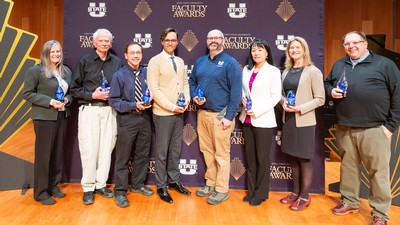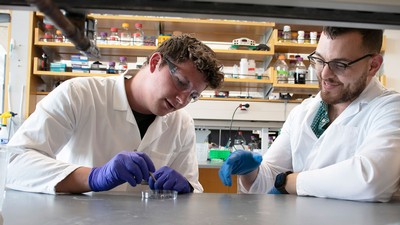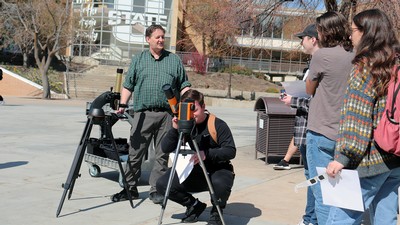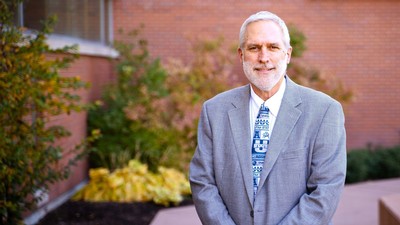More Than a Bandage: Workshop Teaches Skills in 'Mental Health First Aid'
An upcoming "Mental Health First Aid" workshop, designed to teach skills to observers of mental health crises, has been planned by Derrik Tollefson, head of the Department of Sociology, Social Work and Anthropology, and students in the social work master's program.
Picture this: The guy standing in the grocery checkout line in front of you tumbles to the floor clutching his chest.
Likely, your first reaction is to kneel down and roll up your sleeves for CPR — or look for someone who can.
Here’s a second scenario: The guy nearing the cash register begins to shake in distress and panic.
Now, there’s the rub. If you’re like many people, you’ll back off, appear indifferent, pull your children closer.
“It’s my experience that most everybody wants to be helpful,” said Derrik Tollefson, director of the Department of Sociology, Social Work and Anthropology. “But in a mental health crisis, they don’t know how to be — and they’re afraid.”
We’re all familiar with first aid, its bandages and techniques, knee scrapes and broken arms. But a mental health crisis? It can’t be fixed with gauze or an elbow splint.
We can, however, still apply first aid. Think of it as “mental health first aid” for what Tollefson describes as “a disease of the brain.”
It’s like CPR, though. It calls for training. And that’s now available with an upcoming workshop sponsored by SSWA in the College of Humanities and Social Sciences.
The day-long training session will be Saturday, April 22. It is open to the public, but registration is required.
Tollefson said the effort was prompted in part by the September 2016 declaration by USU’s Student Association that mental health concerns among students had reached a crisis level. He charged master of social work students to help “bring something to USU and the community to raise awareness and help people understand that we are all part of a mental health solution.”
They heard, in conversations with teachers, parents and other community members, such frustrations as “I’m just not sure what I can do to help.”
“And so what happens is people end up sort of frozen — ‘What if I make it worse?’” said Tollefson.
The SSWA effort is using a successful framework created by Mental Health First Aid USA, an evidence-based program operated by the National Council for Behavioral Health.
But before any training begins, said Tollefson, we must shift our mindset away from “it’s not my job.”
“This isn’t just the realm of therapists and clinical social workers and psychologists,” he said. “It’s our responsibility as a neighbor or friend to be as helpful as possible within the scope of our training and what we’re able to do.”
Tollefson hopes this workshop is the first of many more. He’s looking for “stakeholders” who want to move on to become local trainers themselves.
But wider than that, he said, the workshop is open to everyone. “What we hope is we’ll have these offered regularly to parents, teachers, church leaders -- anyone who wants to know more about how to be helpful to someone who’s having a mental-health challenge.”
Participants, he said, will leave the workshop with “real concrete tools and knowledge, simple things that they can say and do that are more likely to lead to that person getting the support they need.”
Related Link:
Mental Health First Aid USU (and registration info) found here
Writer and contact: Janelle Hyatt, 435-797-02889, Janelle.Hyatt@usu.edu
Derrik Tollefson can be reached at 435-797-9296 or Derrik.Tollefson@usu.edu
Comments and questions regarding this article may be directed to the contact person listed on this page.






